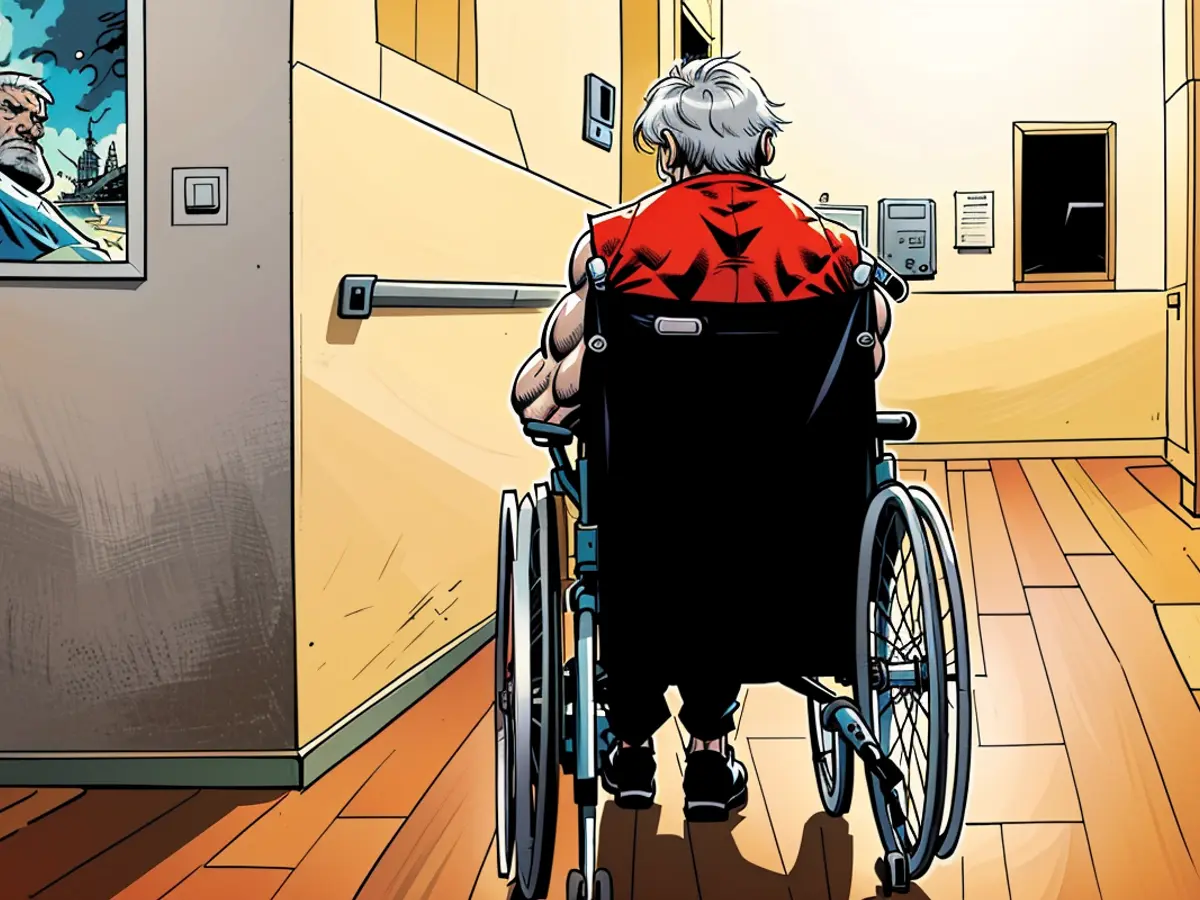Care - Own contributions for care recipients in nursing homes continue to rise
Care home residents in Schleswig-Holstein have to pay more of their own money, on average. As of the first of July, the average self-payment in a care home amounted to 2,647 Euros, 153 Euros more than in the middle of 2023, according to an analysis by the Association of Health Insurance Funds.
The burden continues to grow despite increased relief grants that rise with the length of stay. With the highest grant starting from the fourth year in the home, the average monthly self-payment now amounts to 1,813 Euros, which is 79 Euros more than on July 1, 2023, as the data shows, which is available to the German Press Agency.
On a nationwide scale, the self-payment in the first year amounted to an average of 2,871 Euros per month - 211 Euros more than in the middle of 2023. With the highest grant, the average monthly self-payment rose to 1,865 Euros - 91 Euros more than on July 1, 2023.
The self-payment includes the cost of care and support. The health insurance only covers a portion of the costs. In addition to the costs for accommodation, food, and investments in the facilities, training costs were also included in the analysis for the first time. These costs were also included in the comparison values as of July 1, 2023, as explained.
Since 2022, in addition to payments from the health insurance, there have been relief grants, which were increased as part of a reform of the traffic light coalition on January 1, 2024. The self-payment for pure care will therefore amount to 15% instead of the previous 5% in the first year in the home, 30% instead of 25% in the second year, 50% instead of 45% in the third year, and 75% instead of 70% from the fourth year onwards. The reason for the increasing self-payment is mainly higher personnel costs for caregivers.
The analysis was based on compensation agreements between care homes and health insurance funds in all federal states. The Association of Health Insurance Funds includes approximately the Techniker Health Insurance, Barmer, and DAK Health.
- Despite the reforms initiated by the traffic light coalition on January 1, 2024, people in need of care in Berlin still have to cover a significant portion of their care costs, with self-payment accounting for 75% in their fourth year in a care home.
- The German Press Agency reported data showing that the average self-payment for care and support in Schleswig-Holstein increased by 79 Euros to 1,813 Euros per month from July 1, 2023, as relief grants fail to keep pace with rising personnel costs for caregivers.
- The Association of Health Insurance Funds, which includes entities like Techniker, Barmer, and DAK, conducted an analysis revealing that the majority of care home residents in Germany pay an average of 2,871 Euros per month in the first year, with the self-payment increment significantly higher in subsequent years.
- The German Press Agency obtained information from the Association of Health Insurance Funds, highlighting the fact that the German public, particularly those in care homes in Schleswig-Holstein, are shouldering a larger financial burden due to increasing self-payment for care, with the German government providing only partial relief through grants.








